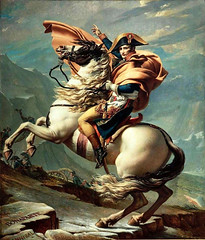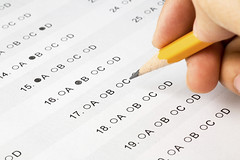| 8789063766 | Sigmund Freud | Founder of psychoanalysis |  | 0 |
| 8789063767 | Psychoanalytic Theory | Behavior is due to unconscious motives and conflicts, Early childhood experiences determine personality |  | 1 |
| 8789063768 | Unconscious Mind | controls the phenomena of repressed feelings, automatic skills, subliminal perceptions, thoughts, habits and automatic reactions as well as possibly holding emotional complexes, phobias and desires. |  | 2 |
| 8789063769 | Id | Ruled by the "Pleasure Principle" and has no values, morality, or logic (animal instincts) |  | 3 |
| 8789063770 | Ego | Ruled by the "Reality Principle" and balances the id and superego by being organized, rational, and postponing gratification |  | 4 |
| 8789063771 | SuperEgo | Ruled by the "Morality Principle" and is the opposite of the Id because it is the internal, parental voice with rules and values |  | 5 |
| 8789063772 | Free Association | patient freely exposes his/her ideas, impressions, etc. |  | 6 |
| 8789063773 | Freudian Slips | Slips of the tongue that expose the unconscious |  | 7 |
| 8789063774 | Psychosexual Development | sequential and discontinuous stages with changing erogenous zone and conflict in each stage |  | 8 |
| 8789063775 | Oral stage | Age: 0-1, Erogenous Zone: Mouth, Fixation: Smoking, Over-eating |  | 9 |
| 8789063776 | Anal stage | Age: 1-3, Task: Potty Training, Fixation: Anal retentive or Anal Expulsive |  | 10 |
| 8789063777 | Latency stage | Age: 6 to puberty, Task: develop relationships with same sex peers to strengthen gender identity |  | 11 |
| 8789063778 | Phallic stage | Age: 3-5, Task: Gender Identity, Fixation: Narcissism, Homosexuality |  | 12 |
| 8789063779 | Genital stage | Age: Puberty to death, Task: Find a hetero-sexual relationship, Fixation: doesn't occur at this stage but old conflicts will arise |  | 13 |
| 8789063780 | Penis Envy | Freudian theory that girls become upset and scarred because because they don't have a penis and a penis is a key to being successful. Phallic Stage |  | 14 |
| 8789063781 | Electra Complex | girls sexually desire dad and hate mom but need to resolve this in order to develop a gender identity |  | 15 |
| 8789063782 | Oedipus Complex | boys sexually desire mom and hate dad but need to resolve this in order to develop a gender identity |  | 16 |
| 8789063783 | Defense mechanisms | extreme measures protect the ego from threats; operate unconsciously and deny, falsify, or distinct reality |  | 17 |
| 8789063784 | Neo-Freudians | Jung, Horney, Adler Believed that Freud put too much emphasis on sex and there needed to be more emphasis on social factors |  | 18 |
| 8789063785 | Collective unconscious | Carl Jung, A warehouse of "instinctive memories" passed down to each generation and all humans share and is made up of archetypes |  | 19 |
| 8789063786 | Archetypes | Inherited universal concepts that create the Collective Unconscious |  | 20 |
| 8789063787 | Basic Anxiety | Karen Horney, anxiety that is created by being born helpless. |  | 21 |
| 8789063788 | Womb envy | Men are envious of a women's ability to have children and therefore, they compensate with other forms of achievement. |  | 22 |
| 8789063789 | Inferiority Complex | people who compensate for feelings of inferiority (feeling like they're less than other people, not as good as others, worthless, etc.) by acting ways that make them appear superior. |  | 23 |
| 8789063790 | Projective Tests | Provide ambiguous stimuli in order to trigger the projection of one's inner dynamics Tests: Rorschach Inkblot Test, & Thematic Apperception Test (TAT), Draw a Person test |  | 24 |
| 8789063791 | Rorschach Inkblot Test | seeks to identify people's inner feelings and conflicts by analyzing their interpretations of 10 inkblots. |  | 25 |
| 8789063792 | Thematic Apperception Test | people view ambiguous pictures and then make up stories about them. |  | 26 |
| 8789063793 | Humanistic Psychologists | Carl Rogers, Abraham Maslow People develop their personality by trying to reach their full potential |  | 27 |
| 8789063794 | Self-Concept | A person has who they are, Real Self, and who they want to be, Ideal Self and a successful persoanlity has congruence |  | 28 |
| 8789063795 | Congruence | A person's Real Self and Ideal Self can merge together Part of Roger's Self-Concept Theory | 29 | |
| 8789063796 | Incongruence | When a person's Real Self and Ideal self do not match, causing anxiety. |  | 30 |
| 8789063797 | Unconditional positive regard | Defined: receiving acceptance, value, and love from others without requirements Part of Roger's Self-Concept theory in which he says it is necessary to receive from others in order to develop a healthy personality |  | 31 |
| 8789063798 | Empathy | People will try to understand one's feelings and mirror it back to them |  | 32 |
| 8789063799 | Hierarchy of Needs | Psychologist: Abraham Maslow Description: Pyramid |  | 33 |
| 8789063800 | Trait Theories | focuses on identifying how people typically behave but does NOT explain how personality developed |  | 34 |
| 8789063801 | Factor analysis | - a statistical procedure that identifies common factors among groups of items, to simplify a long list of items into a small number of dimensions -used with trait theories |  | 35 |
| 8789063802 | Self-Report Inventories | Description: a questionnaire which is used to gauge a wide range of feelings and behaviors Strengths: empirically derived Weaknesses: social desirability-people can lie and manipulate the information Tests: MMPI, CPI, 16 PF |  | 36 |
| 8789063803 | MMPI | Most extensively researched personality inventory. Used to assess mental health professions (police, nurses, doctors, pilots) |  | 37 |
| 8789063804 | Big Five Trait Theory | traits are stable in adulthood, heritability accounts for 50% of personality and can be used to predict other personal attributes | 38 | |
| 8789063805 | Openess | characteristics such as imagination and insight, and those high in this trait also tend to have a broad range of interests |  | 39 |
| 8789063806 | Conscientiousness | include high levels of thoughtfulness, with good impulse control and goal-directed behaviors. |  | 40 |
| 8789063807 | Extraversion | characterized by excitability, sociability, talkativeness, assertiveness and high amounts of emotional expressivenes |  | 41 |
| 8789063808 | Agreeableness | includes attributes such as trust, altruism, kindness, affection and other pro-social behaviors. |  | 42 |
| 8789063809 | Neuroticism | characterized by sadness, moodiness and emotional instability |  | 43 |
| 8789063810 | Social Cognitive Approach to Personality | Description: Personality is influenced between the interaction of a person's traits (including their thinking) and their social context Strengths: based on empirical evidence Weaknesses: minimizes the importance of one's inner traits, emotions, and unconscious motives Examples: Reciprocal Determinism, Locus of Control Psychologists: Bandura |  | 44 |
| 8789063811 | Reciprocal determinism | Psychologist: Bandura Defined: Personality is developed by the interaction of behavioral, cognitive, and environmental factors. How it works: Everyone has a "self-system" of skills abilities and attitudes Self-Efficacy is what can change the system |  | 45 |
| 8789063812 | External Locus of Control | The perception that chance or outside forces beyond your personal control determine your fate |  | 46 |
| 8789063813 | Internal Locus of Control | The perception that you control your own fate |  | 47 |
| 8789063814 | Self- efficacy | Defined: the belief in your own ability to deal with different situations and accomplish specific goals It is NOT self esteem which is your general sense of self worth Consequences: people with high self-efficacy are able to succeed because they have an internal locus of control | 48 | |
| 8789063815 | Compensation | Defense Mechanism where people try to overcome feelings of inferiority in one area by striving to be superior in another area Major part of Alfred Adler's theory |  | 49 |
AP Psychology Personality Flashcards
Primary tabs
Need Help?
We hope your visit has been a productive one. If you're having any problems, or would like to give some feedback, we'd love to hear from you.
For general help, questions, and suggestions, try our dedicated support forums.
If you need to contact the Course-Notes.Org web experience team, please use our contact form.
Need Notes?
While we strive to provide the most comprehensive notes for as many high school textbooks as possible, there are certainly going to be some that we miss. Drop us a note and let us know which textbooks you need. Be sure to include which edition of the textbook you are using! If we see enough demand, we'll do whatever we can to get those notes up on the site for you!

